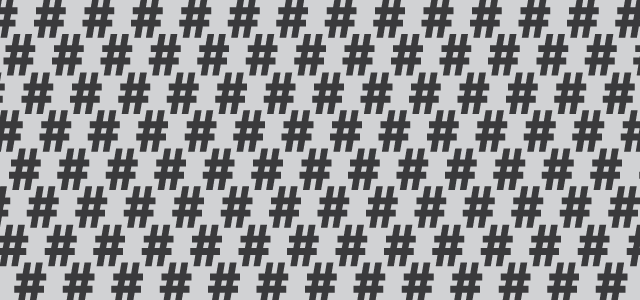Octothorpe
Alternatively spelled octothorp, octathorp, and octatherp.
Coined sometime in the 1960s, the origin of the word is foggy. Some sources say it originates with Bell Labs’ Don Macpherson (1968), others AT&T’s Lauren Asplund “and colleague(s)” (1964), or that it “derives from thorpe, the Old Norse word for a village or farm that is often seen in British placenames. The symbol was originally used in mapmaking, representing a village surrounded by eight fields, so it was named the octothorpe literally meaning eight fields.” (wiktionary.org)
Here’s an excerpt from a nifty little article by National Post columnist Robert Fulford:
But where did [the octothorpe] come from? The answer illustrates the chancy and highly personal way the English language expands. Speaking and writing, we are forced to use tools that arrive among us without credentials or any reasonable explanation of their provenance… We can understand why mystery surrounds vocabulary originating in, say, the 15th century, but you might imagine that so recent an addition to our dictionaries would be easy to explain.
Not so. We don’t really know how “octothorpe” came to exist. And since we have at least three different accounts of its origin, it remains a playground for amateur and professional etymologists — who, as usual, bring to their work a medley of rumours, theories, guesses and totally unjustified self-confidence. (robertfulford.com)
From wikipedia.com:
[Octothorp] was used by Bell Labs engineers by 1968. Lauren Asplund says that he and a colleague were the source of octothorp at AT&T engineering in New York in 1964. The Merriam-Webster New Book of Word Histories, 1991, has a long article that is consistent with Doug Kerr’s essay, in that it says “octotherp” was the original spelling, and that the word arose in the 1960s among telephone engineers as a joke. The first appearance of “octothorp” in a US patent is in a 1973 filing which also refers to the six-pointed asterisk (✻) used on telephone buttons as a “sextile”.
